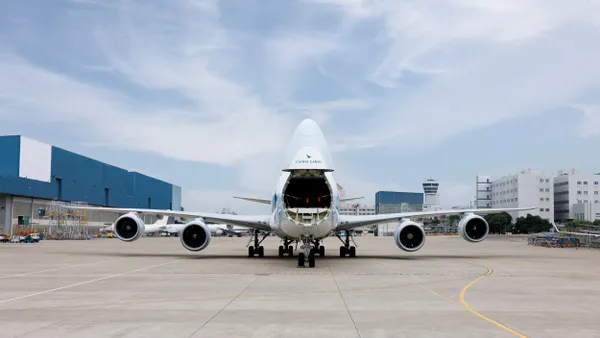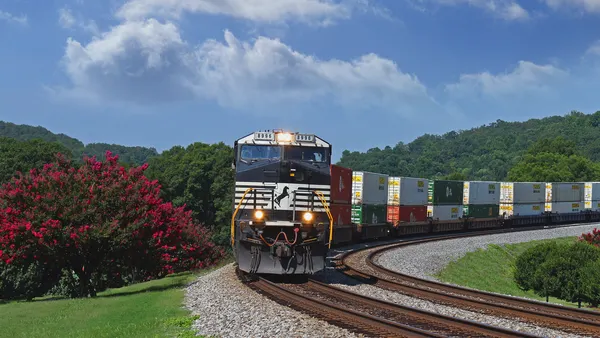Dive Brief:
- Impatient with a nearly 30-year delay by Congress, the Corpus Christi Port Commission voted unanimously to offer $32.2 million in advance funding to the Army Corps of Engineers in order to move the first phase of a long-awaited dredging project forward, the Caller-Times reported last week.
- The project will allow larger barges to move in and out of the port, most of which carry crude oil exports. Dredging will increase the depth to 56 feet from its current 49 feet, while other more shallow sections of the channel will be deepened to 54 feet. The channel will also be widened, which will allow for the creation of separate lanes for barges heading in and out of the port.
- Port officials hope Congress will soon allocate the promised funding for the project. The remainder (after the 32.2 million pledged by the Port Commission) due is $224.5 million of the $327 million estimated total.
Dive Insight:
As national infrastructure restoration remains undone, local officials are acting independently.
According to the American Society of Civil Engineers (ASCE), the condition of the nation's ports has earned only a C+ rating, well below a healthy ranking. Unable in their current condition to accommodate today's larger vessels, many ports cannot effectively distribute and receive goods, despite their $4.6 trillion contribution to the American economy. Infrastructure shortcomings are also impacting the chemical industry due to transportation delays, rising capital expenditures, and an increase in operating costs. To cope with their own infrastructure repair needs, states like Indiana, Montana, New Jersey, South Carolina, Tennessee and West Virginia have raised the tax on diesel fuel anywhere from 2 to 17.5 cents per gallon, as has California.
As the infrastructure situation grows increasingly problematic, states are taking matters into their own hands in order to fuel progress and repair. Though the current administration did address the issue during the campaign, little to no progress has been made since that time, with even an advisory council on the matter disbanding after a single month. Public welfare analysts such as the Center on Budget and Policy Priorities recommend that states begin to undertake their own infrastructure funding as well, noting that private investment tends to benefit only those behind the financing, while public subsidies result in greater good for more residents.
But not all states and local governments may have the means to start necessary infrastructure projects like the Port of Corpus Christi. Some ports may turn to private investors or businesses or start public-private partnerships to fund infrastructure projects if the federal government doesn't provide the necessary funds.













